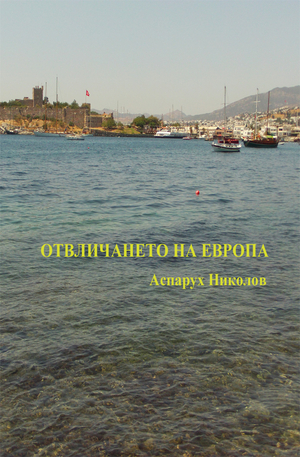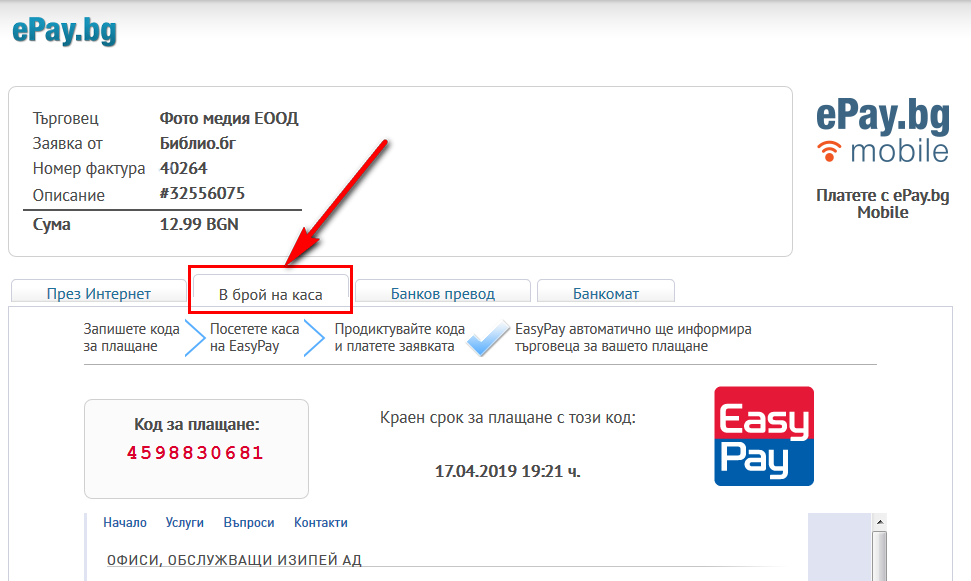Отвличането на Европа
Преминаването на човека през времето – нежно и яростно - и преминаващото през човека време – безразлично та безжалостно, ама човешко, защото човек и времето си е въобразил. Та е безразлично и безжалостно като хората, преследващи химерите си и връщащи към себе си едва когато губят тези, които обичат.
Историята на мъж, жена и тяхната дъщеря, които разбират, че са семейство едва когато светът, раздиран от революции, войни и идеологии, е тръгнал окончателно да ги разделя. А те имат само несподелената си любов, която преследват през клокочещата социална магма в Европа и Америка между 1918 и 1938 г. – от Руската революция до Испанската гражданска война.
За моделите от серията Kindle е необходимо да конвертирате .epub файловете към .mobi формат с безплатната програма Calibre.
Виж софтуер за четене на е-книги и е-списания.
еКнига, еСписание - това е файл, съдържащ текст, шрифтове, изображения, хипервръзки, видео или звук. Текстът е форматиран по начин познат от печатните издания.
Библио.бг разпространява изданията във формати .ePub и/или .PDF
"Прочети откъс" - натискайки този бутон, вие добавяте файл с откъс от съдържанието на изданието в "Моята библиотека". Това е мястото, от където може да свалите файла и да го отворите на своето устройство.
"Поръчай" - натискайки този бутон, вие добавяте изданието в своята "Кошница" с продукти за плащане. От там може да изберете начин на плащане и да платите. В зависимост от начина на плащане, вашите издания ще бъдат налични за четене в "Моята библиотека" веднага или след извършване на плащането от вас към Библио.бг
Издания с цена 0 стават моментално достъпни, с натискането на бутон "Поръчай", в "Моята библиотека".
Начините за плащане са: С директно въвеждане на Кредитна карта, ePay, EasyPay, PayPal, банков превод, ваучер със стойност.
DRM: е система за контрол на достъпа до електронните издания. Това е изискване на някои от издателствата свързано с разпространението. Книгите, които имат DRM са означени със знак "DRM". Повече за DRM тук
* при възникнали въпроси свързани с достъпността на закупените издания се свържете с нас на оставените контакти
Kниги от същия жанр
-

Не всичко е парие-книга:
3.57 EUR
7.00 лв.печатна:
3.06 EUR
5.99 лв. -

Заекът на Галае-книга:
3.06 EUR
6.00 лв.печатна:
4.09 EUR
8.00 лв. -

Зелен е...е-книга:
4.09 EUR
8.00 лв. -

Червеният ангеле-книга:
5.62 EUR
11.00 лв. -

Лъжата - Жан, Иван и другите - книга 1е-книга:
3.57 EUR
7.00 лв.печатна:
12.77 EUR
24.99 лв. -

Защитенияе-книга:
5.11 EUR
10.00 лв.печатна:
9.20 EUR
18.00 лв. -

Пчелно семействое-книга:
5.62 EUR
11.00 лв. -

Къщата на глухияе-книга:
5.11 EUR
10.00 лв. -

Красавица и други истории. Разкази, том 2е-книга:
7.66 EUR
15.00 лв.
Информация за избраната книга
Информация за книгата:
В медиите
Abduction of Europe
by Asparouh Iliev Nikolov
Reviewed by Dr. George Simons at diversophy.com
Normally, as interculturalists, we tend to think of culture as the flow of discourse that we inherit and absorb from experience, both unconsciously and consciously and that, in turn, provides the raw material and drivers for our judgments, thoughts, feelings, and behaviors, in short what we do and what we make. Normally the focus of cultural attention is on groups and individual behaviors, how we get on with others and get things done together. Research in biology, physiology, and cognitive science are beginning to show us where and how this discourse lives inside of us. Yet, what most people call culture tends to be more concrete and is found in the music, literature, arts, fashions, etc., the things we hear, see, touch, eat and buy--still, of course, the emanations of the discourse which builds our values and our identities.
It is important for us from time to time to get outside of this box of culture as an object of academic exploration and intercultural communication as a commodity to be sold and to look at the artist’s and the artisan’s concretizations of culture. Hence, this review is not about research literature, professional competence, or new tools in the interculturalist’s armamentum, but about a novel.
There couldn't be a better starting place than Nikolov’s new novel, The Abduction of Europe. It is at once a look at the mythology and the reality of Europe, set in the history of the twentieth century––just far enough away for us to read it as art, and close enough for us to recognize the powerful critique relevant to the lives, politics, and economics of today. It reminds us of how the gods of the Greeks, whose names are often unremembered, are still saddled and ready to ride the European consciousness. I forget who said it first, but “all art is obscene,” that is, going to the roots of the word, something that tears away the veils, the social constructions and protective politeness hiding the truth, and allowing our eyes to vividly see what we have missed in our dressed up taken-for-granted reality. Exactly what this book does, and precisely why it should be a read for interculturalists and the like.
The Abduction of Europe reads much like a screenplay, and it certainly would make an excellent one. The chapters, if we can call them such are simply labels telling us what went on in a certain place at a certain time, e.g.,” Russia 1918,” Texas 1938,” “Bulgaria 1923.” “Paris 1919”, sets of flashbacks and flash-forwards in the lives of the cast.
The heart of the story is Dea (yes, a goddess of sorts), a woman who poses as Europa for a Parisian artistic event, whose resultant paintings are scattered about the settings of the story. It is about Dea seeking her own destiny, but one repeatedly and inevitably entwined with and swept away by a powerful and lascivious bull-god of contemporary events. It is about her, at first, would-be assassin and then lifetime lost lover, Toma. It is about the passion for love and a passion for revolutionary politics. It is about the manipulation of the world by money and the philosophies of those who think this is right and good in conflict with those who think otherwise. It ends with a character called Gea (yes, reminiscent of the earth) swimming for survival. It is about our yearning to bury Time, and how Time ultimately buries us.
Normally, a review itemizes and analyzes the content of a book, but as with any good story, play, or film, it's an unforgivable sin to give away the plot. So what is left for me to say, but that I read it in one sitting, then did so a second time. It is a story of desire and blood, filled with conflicts, intensely described, not for the faint of heart. Nonetheless, one reads on because the souls of the protagonists are partly our own, and though separated by time and space, we somehow inhabit the same world as they do.
The story is also fascinating from the point of view that it is the re-creation of a Bulgarian original by the author who is a writer and film director. The language is both deliberately as it is, in an English that reflects how the various characters from various countries and cultures might be heard speaking. Furthermore, the author has contributes an aura of movement, rhythm and presence by his constant use of the present progressive tense. Somehow this works to slow the reader down and allows him or her to feel the action more intensely.
For me this writing also makes clear implications of the fact that English, today’s lingua franca is spoken by more people as a second language than by native speakers. Language usage in these pages, influenced by the origins of the speakers and the author, includes what pedantic teachers may tell us are errors or misconstructions, but that make up, in fact, the linguistic reality in which we all now live. This is a linguistic and cultural ambiance that will be taking us into the future.
In short, read it, explore it, reflect on it! Good art somehow brings us home to reality again, as T. S. Eliot poetically puts it:
“…the end of all our exploring
Will be to arrive where we started
And know the place for the first time.”
За автора

Аспарух Николов
Биография:
Аспарух Николов




То е много важно за нас, затова може да ви бъдем от полза като ви дадем следните насоки:
Резюме: Моля опишете вашето общо впечатление от продукта в няколко думи.